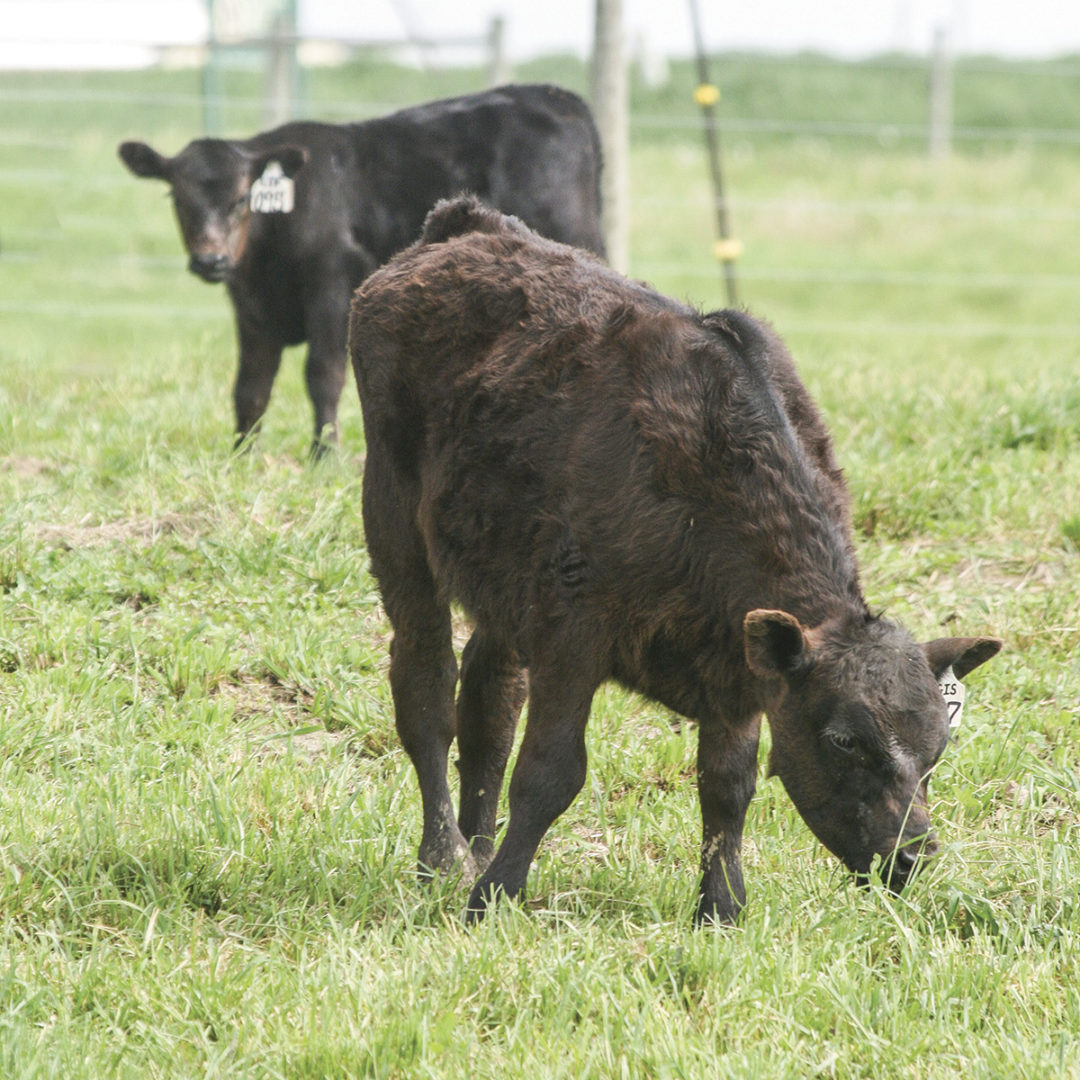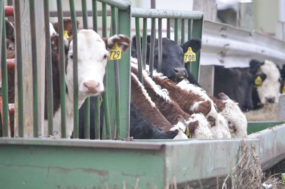When determining the health of your herd, you probably rely primarily on external factors: evaluating body condition and looking for symptoms of illness or signs of injury. However, when it comes to overall cattle health, it’s vital to remember that what’s on the inside is just as important as what you can see on the outside.
Gut health is essential for the overall health, well-being and performance of cattle. While the gut is known for digestion and absorption of nutrients, it is also the largest immune organ in the body. A healthy gut protects cattle from pathogens and acts as a barrier to infection.
Microbiome, nutrition, intestinal integrity and immunity are interrelated components that allow the gut to influence the health and productivity of cattle.
Microbiome and nutrition
A balanced diet that meets cattle requirements for protein, energy, vitamins and minerals not only supports weight gain, but it’s the first step toward producing a healthy gut microbiome. The microbiome consists of all microorganisms, including protozoa, bacteria and fungi, that live inside a cow’s gut. The importance of the microbiome cannot be understated as it stimulates the development of the gastrointestinal tract, contributes to digestion and influences health and well-being.
A strong population of good bacteria in the microbiome can crowd out bad bacteria, helping protect cattle from health challenges. Poor nutrition or abrupt diet changes can alter the pH of the rumen, damaging the microbiome population. When the population of good bacteria versus bad gets out of balance, health issues like bloat and acidosis, among others, can occur.
A nutrition plan that influences cattle to consume multiple small meals throughout the day can benefit gut microbe populations. Supplements with intake-control properties help send metabolic signals to the cow, letting it know it’s time to stop eating the supplement and to graze. These snack-sized portions of nutrition throughout the day can help avoid drastic shifts in rumen pH and, ultimately, aid in averting health challenges.
Intestinal integrity
Like people who suffer from stomach ulcers due to small holes in the stomach, cattle can also get holes in any section of their digestive tract. This can be caused by stress, which damages the integrity of the intestine. The damage can allow pathogens to escape the digestive tract and invade the body or bloodstream, leading to disease and distress in cattle.
A good rule of thumb for intestinal integrity is to keep cattle comfortable. Everyday stressors such as weaning, extreme heat or cold, diet changes, overcrowding, transportation and periods of high production demands can affect cattle. Minimizing these periods of stress can help maintain intestinal integrity and assist the gut in preventing disease through pathogens entering the body.
Immunity
Cattle immunity is an ongoing story, not determined by a snapshot in time. There are three types of immunity: passive, innate and active. All three types of immunity influence the health and well-being of cattle. Therefore, a better understanding of immune function is a good step toward improving herd health. Balanced nutrition and limited stress are strong foundations of a management plan that sets your herd up for optimized immunity.
After birth, calves acquire passive immunity through the consumption of colostrum. High-quality colostrum contains immunoglobulin antibodies, protein and energy – all crucial to newborn calf health. If cows lose weight in the last trimester, the quality and quantity of colostrum are compromised. Poor cow nutrition can result in calving difficulty, low calf vigor and scours.
But even before that calf is born, its innate immune system is developed. Think of this as the ability of cattle to fight off infection by creating white blood cells. This development begins shortly after conception and is influenced by proper cow nutrition during gestation.
Finally, active immunity is acquired over time through natural disease exposure or vaccinations and is triggered to produce antibodies in response to pathogens. Active immunity is long lasting and is supported by quality nutrition and a healthy gut.
Healthy gut, healthy cattle
There is no silver bullet to prevent sickness and disease in your herd. However, utilizing a quality nutrition program and reducing cattle stress supports a healthy microbiome, solid intestinal integrity and a strong immune system. Throughout a cow's lifetime, a focus on gut health can promote optimized overall health and performance in cattle.









